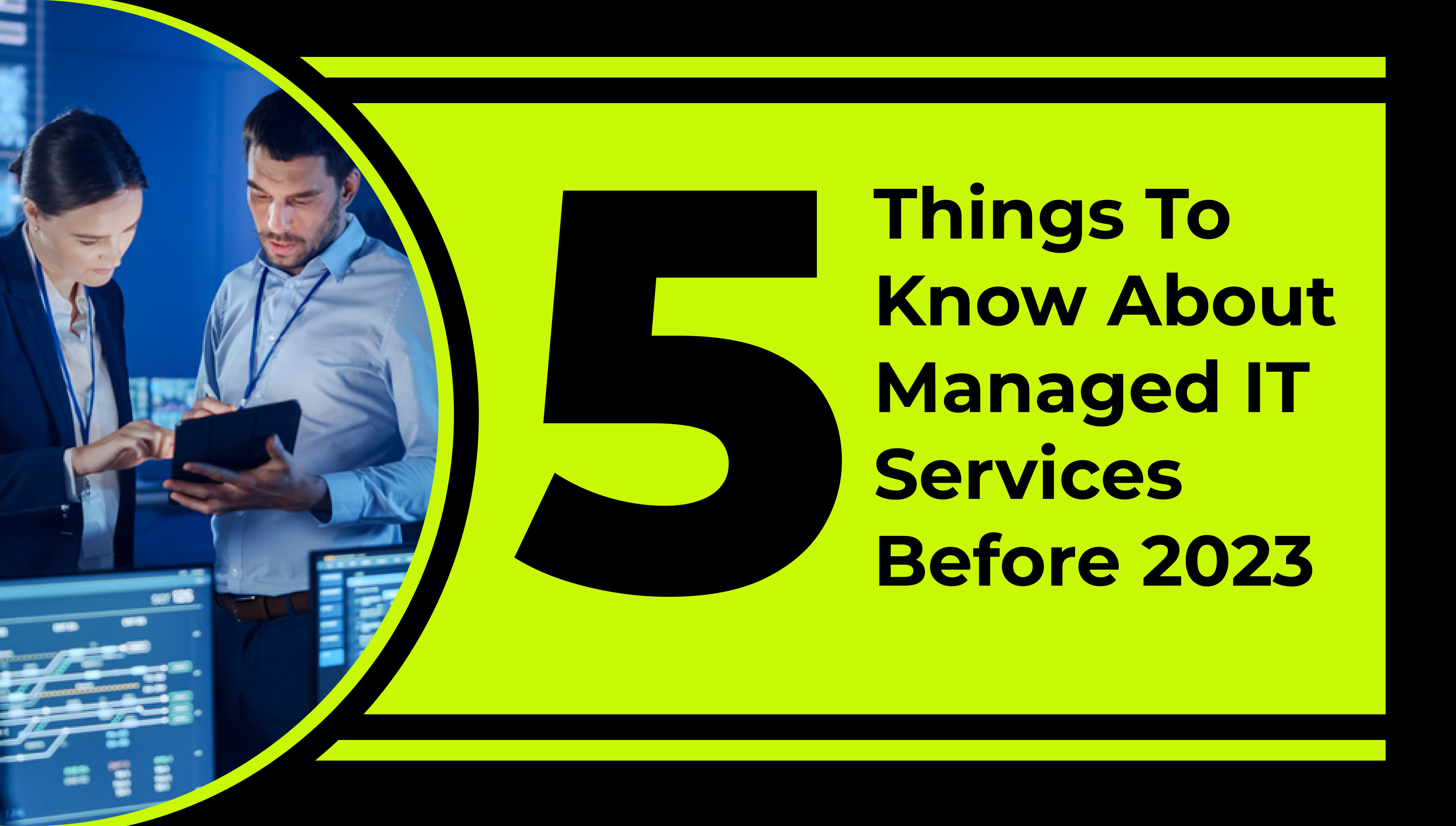The pandemic completely shifted the world to having more remote and hybrid workplaces, but having more employees working remotely comes with unique IT challenges that not all businesses were prepared for. That’s where outsourcing your IT services comes in. Having a company handle your IT operations can enhance your existing service quality, free up your employees for more core-business activities, and keep your IT expenses under control.
Keeping up with day-to-day IT services can be a challenging task due to consistently updating technology as well as evolving cybersecurity threats. Still, having a team to help your company with outsourced IT services can be a game-changer for your organization’s safety and security.
1. Why outsource the most difficult cybersecurity tasks?
Most companies who have tried outsourcing their IT service needs have come across two often-used terms, Managed IT Service Provider(MSP) and Managed Security Service Provider(MSSP). The difference between the two is fairly subtle, and it is easy to get confused about which one to hire for your company’s needs.
The MSP’s main job is to be responsible for IT administration and strategy. While some of their time is dedicated to security, most of their focus lies with improving your system to provide a satisfying user experience for your staff. However, the MSSP is solely focused on the security related monitoring and management of your systems, typically at the firewall and network level.
74% of businesses have struggled to find a cybersecurity solution that meets their needs, and 53% have missed out on implementing new business ideas due to cybersecurity risks. This report suggests that threat hunting, incident investigation, and incident response are some of the most difficult cybersecurity tasks for companies. Outsourcing these tasks can be particularly useful for companies that don’t have the manpower to monitor cyber threats consistently.
2. Why go for managed IT services and not staff augmentation?
When you begin looking for an IT service provider, finding the correct fit for your organization that meets your requirements and scales to your budget is the first hurdle to clear. While staff augmentation can help temporarily with some of your business’ IT needs, it is not the most reliable method. Finding a temporary hire that is an expert in several different IT niches is harder than ever. In Canada, there is a skills shortage, making cybersecurity professionals, network administrators, and IT support professionals some of the most in-demand jobs right now.
Managed IT services are an excellent alternative to help bridge the gap. Your company doesn’t need to make a hire in one of the most competitive markets because managed IT service providers already retain top talent in all the most in-demand IT skills. You can pay less for more, with many managed service providers offering 24/7 support and a wide range of experts who can work with your company as needed.
3. What is included in managed IT services in 2023?
MSPs often provide the following services:
- IT Support
- Backups
- Security
- Firewall
If you are a small to medium business owner, staying competitive by maintaining superior levels of customer care and a thriving workplace is key, and managed IT services can help you accomplish that. They keep all your technology running smoothly while you focus on delighting your customers.
4. What’s The Difference Between Managed IT Services And Cloud Services?
Cloud services are a wide range of independent services delivered on demand to companies and customers over the internet. These services are designed to provide easy and ideally affordable access to applications and resources without the need for any usage of hardware. Cloud services are fully managed by cloud computing vendors and service providers. They are made available to customers from the providers’ servers so that a company need not host the applications on its own on-premise servers.
On the other hand, managed IT service providers manage and maintain your IT services and functions. They can assist you with migrating your business to the cloud and maintaining your cloud ecosystem. They also provide the benefit of 24/7 monitoring and IT support.
5. Can managed IT services influence cyber insurance premiums?
Before getting cyber insurance, you should pre-audit your technological environment and security policies to ensure that your organization follows cybersecurity guidelines. Security technology is admittedly costly. However, it is critical to address high-risk vulnerabilities and budget for future expenses to reduce exposure and secure your business. This helps make your company more “insurable” by convincing insurers that you’re aware of the cybersecurity risks for your organization and are working to mitigate them.
But what does this have to do with managed IT services? Ultimately, the cost of exposure to cyber-attacks is enormous, and the interruption following an attack can be extremely costly. Managed IT services can help by helping audit and update your security procedures, keep a close eye on any security vulnerabilities to mitigate risk, and reduce downtime if a cyberattack occurs. Additionally, they are typically able to provide insurers with documentation showing the security plan and contingencies your organization has in place, making it easier and cheaper to get good cyber insurance for your organization along with the peace of mind of having a plan in place for any security incidents.
You will come across a wide range of Managed IT Services as you explore your options. Finding an MSP that can tailor itself to the specific needs and requirements of your organization while keeping your budget in mind is the best way to choose.
Want to learn more about the different IT services an MSP can provide? Read more on our website.
